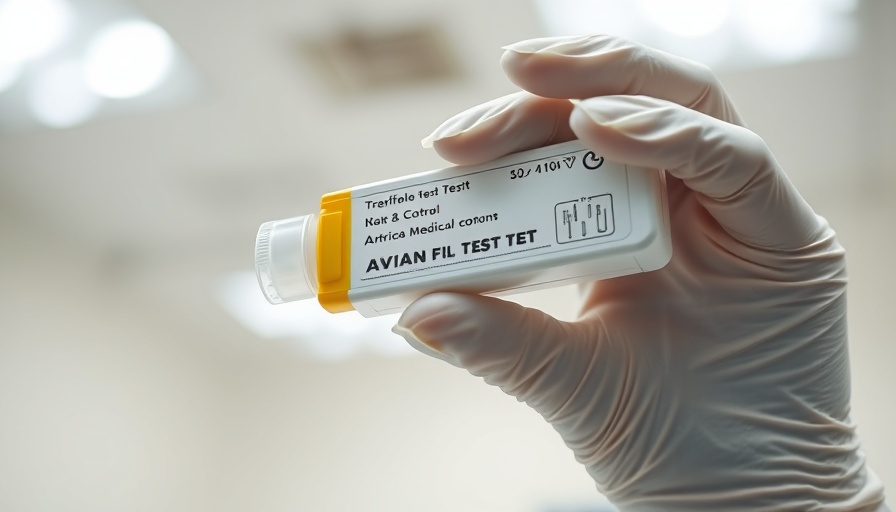
Incentivizing Health: Unconventional Strategies Against Bird Flu
The California Department of Public Health (CDPH) is taking proactive measures to combat the avian influenza virus by offering a unique incentive—$25 to individuals who undergo screening or get vaccinated for bird flu. This initiative comes at a time when public concern about the avian flu's potential spread persists, despite the Centers for Disease Control and Prevention (CDC) assessing the overall risk as low. The state aims to encourage participation in health screenings amid fears of further outbreaks.
Who Should Participate?
The CDPH recommends that anyone aged six months or older, particularly those at higher risk—such as individuals working with poultry, handling raw milk, or managing backyard flocks—should take advantage of this offer. The vaccine for the 2024/2025 flu season is readily available, positioning this initiative as a critical step towards safeguarding public health.
Understanding Avian Flu: Symptoms and Risks
Cases of bird flu have been confirmed in 13 states this year, with dynamics indicating that the virus, although primarily a concern for avian and livestock populations, has a real potential to affect humans. Symptoms in infected individuals can vary from mild conditions like cough and fever to severe manifestations such as shortness of breath and altered consciousness. Residents are urged to take this threat seriously, as even a single case can lead to severe health outcomes.
A Community Response to a Health Threat
While avian flu is still a relatively rare infection for humans—70 cases reported so far—this response from California exemplifies how public health officials are attempting to stay ahead of potential outbreaks by promoting awareness and vaccination. These approaches can also serve as models for other states that may face similar challenges.
The Importance of Early Detection and Familiarity with Symptoms
Being informed about the symptoms and actively screening for conditions like avian flu enables communities to react swiftly to outbreaks, limiting exposure and transmission. Engaging citizens through financial incentives could lead to increased participation in health initiatives and potentially lower the risks associated with this virus.
 Add Row
Add Row  Add
Add 




 Add Row
Add Row  Add
Add 

Write A Comment